Pregnancy is a beautiful journey, but for some women, it can come with increased risks. A high-risk pregnancy means that you or your baby has a higher chance of experiencing health problems during pregnancy, labor, or after delivery. At Well-Life Hospital, we understand the concerns and anxieties that come with a high-risk pregnancy, and we’re dedicated to providing you with comprehensive and compassionate care every step of the way.
What Makes a Pregnancy High-Risk?
Several factors can contribute to a pregnancy being classified as high-risk. These include:
- Age: Women under 17 or over 35 are generally considered to have a higher risk of complications.
- Pre-existing Medical Conditions: Conditions like diabetes, high blood pressure, heart disease, kidney disease, autoimmune disorders, and sexually transmitted infections (STIs) can significantly impact pregnancy.
- Multiple Pregnancies: Carrying twins, triplets, or more increases the risk of premature labor, gestational diabetes, and other complications.
- Pregnancy-Related Conditions: Conditions that develop during pregnancy, such as gestational diabetes or preeclampsia, can pose risks to both mother and baby.
- Lifestyle Factors: Smoking, alcohol consumption, and drug use can all contribute to a high-risk pregnancy.
- Previous Pregnancy Complications: A history of premature birth, preeclampsia, or other complications in a previous pregnancy increases the risk of recurrence.
Common Risk Factors in Nigeria
In Nigeria, some factors contribute significantly to high-risk pregnancies:
- Limited Access to Prenatal Care: According to the National Demographic and Health Survey (NDHS), a significant percentage of women, particularly in rural areas, do not receive adequate prenatal care. This lack of early and consistent monitoring can lead to undiagnosed or poorly managed complications.
- High Prevalence of Infections: Malaria and other infections are common in Nigeria and can have serious consequences during pregnancy, including premature labor and low birth weight.
- Anemia: Iron deficiency anemia is widespread among pregnant women in Nigeria, increasing the risk of maternal morbidity and mortality. Studies have shown that the prevalence of anemia in pregnancy in Nigeria can be as high as 60%.
- Socioeconomic Factors: Poverty, lack of education, and limited access to healthcare resources contribute to poor maternal health outcomes.
What to Expect at Well-Life Hospital
If you’ve been identified as having a high-risk pregnancy, Well-Life Hospital offers specialized care tailored to your specific needs. This may include:
- More Frequent Prenatal Visits: Regular check-ups allow us to closely monitor your health and your baby’s development.
- Specialized Testing: We may recommend additional tests, such as ultrasounds, amniocentesis, or chorionic villus sampling (CVS), to assess your baby’s health and detect any potential problems.
- Consultation with Specialists: You may be referred to specialists, such as maternal-fetal medicine specialists, cardiologists, or endocrinologists, depending on your specific condition.
- Medication Management: We’ll carefully manage any medications you’re taking to ensure they’re safe for you and your baby.
- Lifestyle Counseling: Our team will provide guidance on healthy eating, exercise, and other lifestyle modifications to help you manage your risk factors.
- Advanced Monitoring During Labor and Delivery: We offer advanced fetal monitoring and have a highly skilled team ready to handle any complications that may arise during labor and delivery.
Reducing Your Risk
While you can’t change some risk factors, such as age or pre-existing conditions, there are steps you can take to reduce your risk of complications:
- Early and Regular Prenatal Care: Starting prenatal care early and attending all scheduled appointments is crucial.
- Healthy Diet: Eat a balanced diet rich in fruits, vegetables, and whole grains.
- Maintain a Healthy Weight: Talk to your doctor about a healthy weight range for you.
- Avoid Smoking, Alcohol, and Drugs: These substances can harm your baby.
- Manage Existing Medical Conditions: Work with your doctor to manage any pre-existing conditions.
- Get Vaccinated: Certain vaccines are safe and recommended during pregnancy to protect you and your baby.
Well-Life Hospital: Your Partner in a Healthy Pregnancy
At Well-Life Hospital, we’re committed to providing you with the highest quality care throughout your pregnancy journey. Our experienced team of doctors, nurses, and specialists will work closely with you to develop a personalized care plan that meets your unique needs. We understand the challenges of a high-risk pregnancy and are here to support you every step of the way. Contact us today to schedule a consultation and learn more about how we can help you have a healthy and successful pregnancy.





